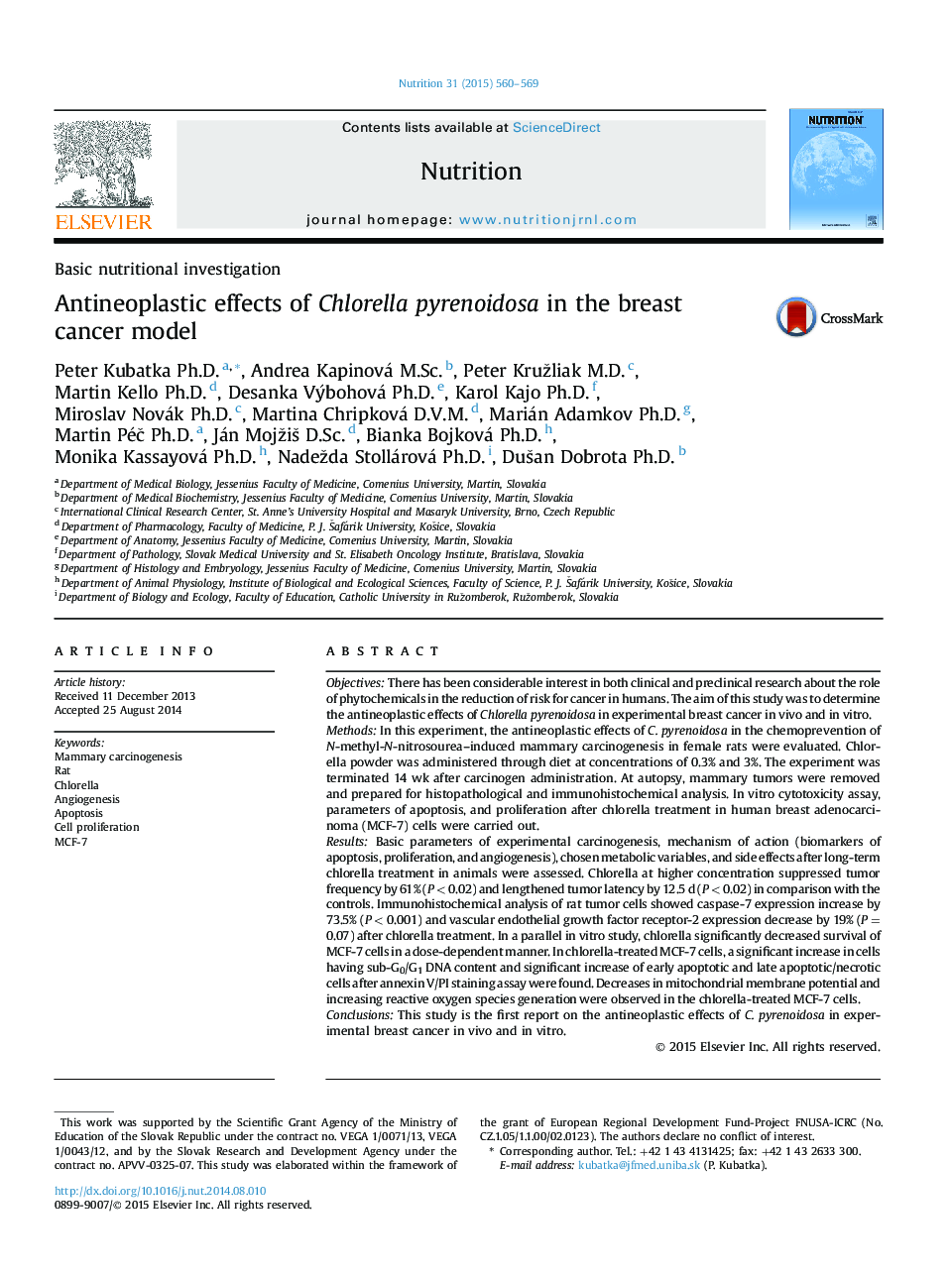| Article ID | Journal | Published Year | Pages | File Type |
|---|---|---|---|---|
| 3276225 | Nutrition | 2015 | 10 Pages |
•Chlorella pyrenoidosa showed antitumor effects in experimental breast cancer in rats.•The carcinomas had a better prognosis after chlorella treatment.•Positive effects on plasma lipid metabolism in animals accompanied treatment with chlorella.•Antineoplastic effects of chlorella were confirmed also in vitro in human breast adenocarcinoma cells.
ObjectivesThere has been considerable interest in both clinical and preclinical research about the role of phytochemicals in the reduction of risk for cancer in humans. The aim of this study was to determine the antineoplastic effects of Chlorella pyrenoidosa in experimental breast cancer in vivo and in vitro.MethodsIn this experiment, the antineoplastic effects of C. pyrenoidosa in the chemoprevention of N-methyl-N-nitrosourea–induced mammary carcinogenesis in female rats were evaluated. Chlorella powder was administered through diet at concentrations of 0.3% and 3%. The experiment was terminated 14 wk after carcinogen administration. At autopsy, mammary tumors were removed and prepared for histopathological and immunohistochemical analysis. In vitro cytotoxicity assay, parameters of apoptosis, and proliferation after chlorella treatment in human breast adenocarcinoma (MCF-7) cells were carried out.ResultsBasic parameters of experimental carcinogenesis, mechanism of action (biomarkers of apoptosis, proliferation, and angiogenesis), chosen metabolic variables, and side effects after long-term chlorella treatment in animals were assessed. Chlorella at higher concentration suppressed tumor frequency by 61% (P < 0.02) and lengthened tumor latency by 12.5 d (P < 0.02) in comparison with the controls. Immunohistochemical analysis of rat tumor cells showed caspase-7 expression increase by 73.5% (P < 0.001) and vascular endothelial growth factor receptor-2 expression decrease by 19% (P = 0.07) after chlorella treatment. In a parallel in vitro study, chlorella significantly decreased survival of MCF-7 cells in a dose-dependent manner. In chlorella-treated MCF-7 cells, a significant increase in cells having sub-G0/G1 DNA content and significant increase of early apoptotic and late apoptotic/necrotic cells after annexin V/PI staining assay were found. Decreases in mitochondrial membrane potential and increasing reactive oxygen species generation were observed in the chlorella-treated MCF-7 cells.ConclusionsThis study is the first report on the antineoplastic effects of C. pyrenoidosa in experimental breast cancer in vivo and in vitro.
